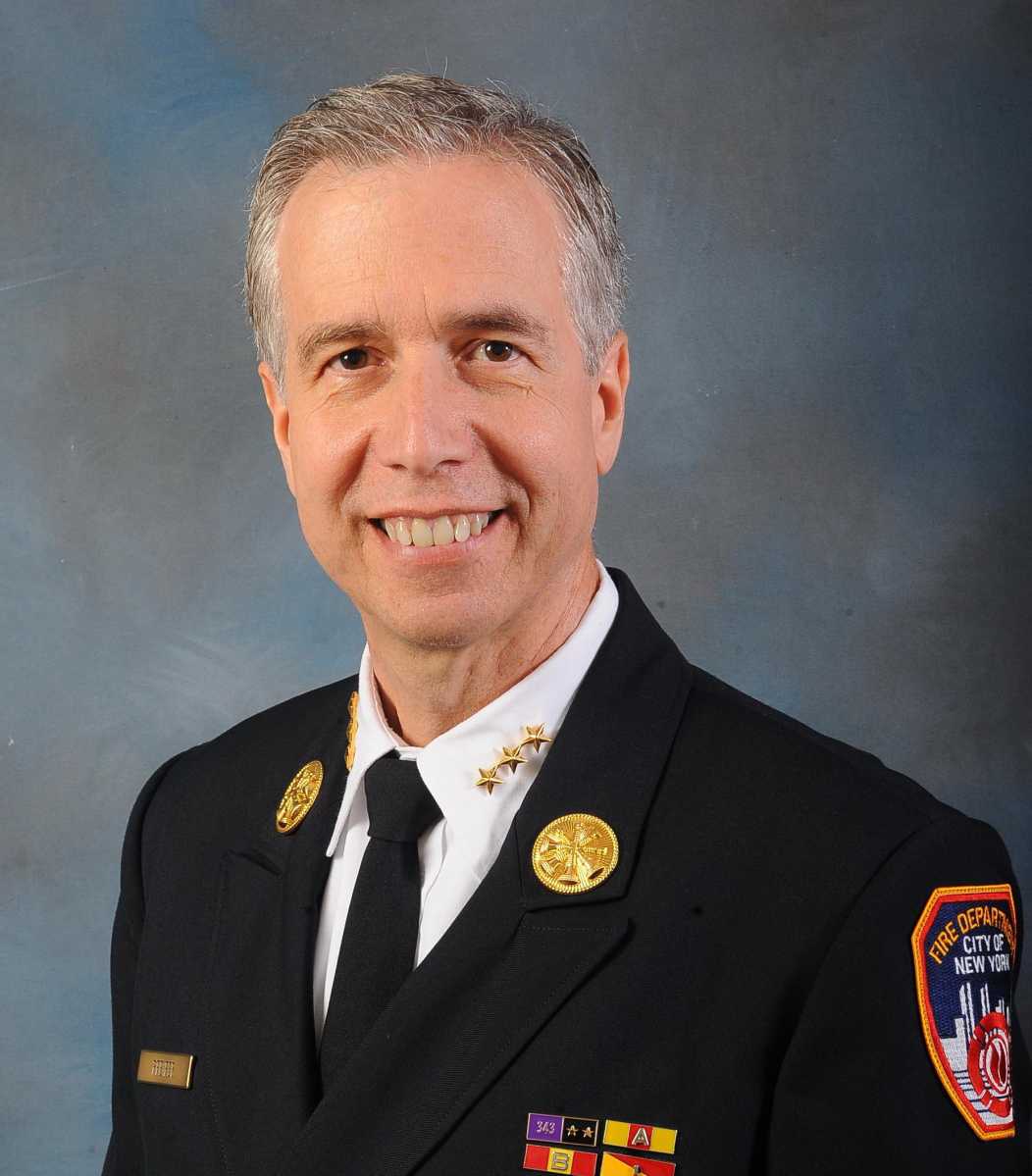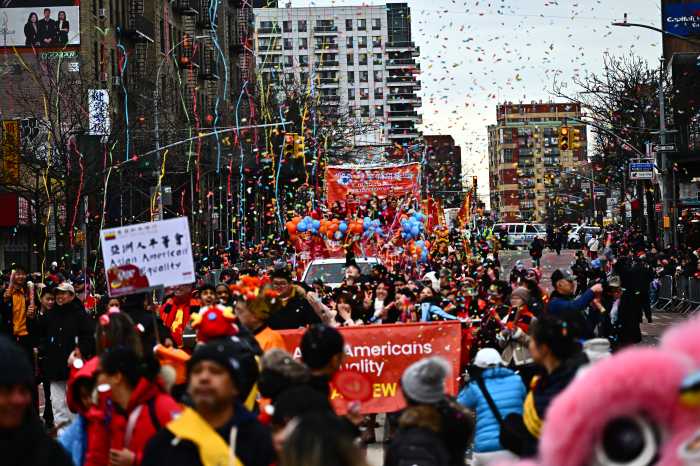He possesses wisdom born from being at the center of the darkest maelstrom in New York City history.
Retired FDNY Battalion Chief Joseph Pfeifer of Middle Village, who was the first senior leader on the scene during the Sept. 11 terrorist attacks, was named a recipient of the Christopher Awards last month for his critically acclaimed “Ordinary Heroes: A Memoir of 9/11,” which recalled the heroism he witnessed that day.
His book takes readers on a journey that turns traumatic memories into hope, so they can make good on the promise to never forget 9/11. Pfeifer is currently a senior fellow at the Harvard Kennedy School; a senior fellow at the Combating Terrorism Center at West Point; and the director for crisis leadership at the National Center for Disaster Preparedness at Columbia University.
“Originally, I shopped it around as an academic book on crisis leadership and the editors at Random House said that will be your second book,” Pfeifer told QNS. “They encouraged me to write my personal story first.”
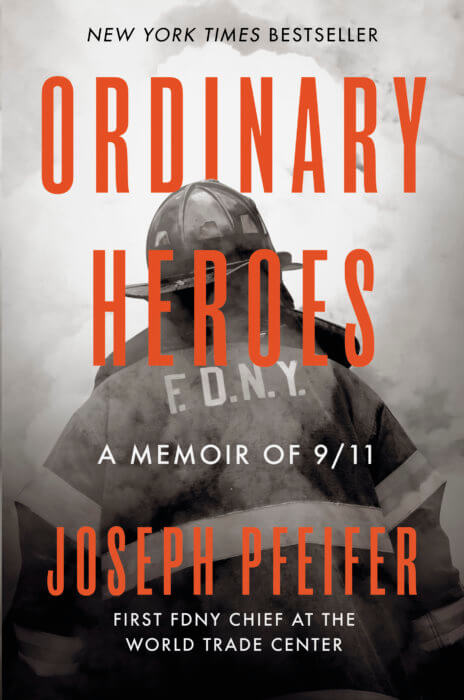
Pfeifer was checking a gas leak in Tribeca at 8:46 on the morning of Sept. 11 when he heard the roar of jet engines and looked up to see the American Airlines jetliner slam into the North Tower a few blocks away. He was the first chief on the scene and set up a command post inside the burning tower. Just 17 minutes later, the second jet slammed into the South Tower.
With the elevators shut down, Pfeifer began ordering hundreds of firefighters to start climbing the stairs to the 70th floor to begin rescuing survivors, including his own brother, Lieutenant Kevin Pfeifer.
“I saw him that morning and we looked at each other as if we wondered if we would be OK. It was a special moment of understanding for us,” Pfeifer said. “We knew it was going to be a rough day.”
He didn’t see his brother alive again. He was one of the 343 FDNY firefighters who were lost on one of the darkest days in American history. But in his memoir, Pfeifer writes about their heroism.
“As the firefighters went up those stairs, they encountered thousands of people and encouraged them to not panic and to keep going, so many made it out with simple encouragement,” Pfeifer said. “Following the collapse of the Twin Towers, lower Manhattan was covered in darkness. You couldn’t see your hand right in front of your face. People were lost in that cloud of darkness until they began seeing the light on the firefighters’ helmets. It became a symbol of hope and created a sense of unity that brought the city and nation together at a time of darkness.”
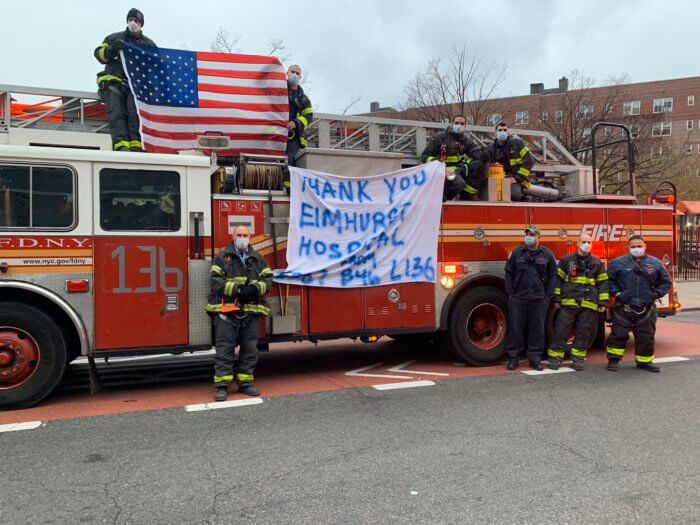
It was that heroism that led to the rescue of more than 20,000 people at the World Trade Center that day. Chief Pfeifer returned to the scene the following day as the grim search for survivors got underway on The Pile. This turned into a monthlong recovery operation in which so many more firefighters inhaled toxic fumes, which eventually led to their own deaths from cancers and other 9/11-related illnesses.
On Feb. 2, Kevin Pfeifer was discovered in the wreckage still wearing his turnout coat. Chief Pfeifer led the stretcher-bearers carrying his brother out of the pit.
One year later, Pfeifer was speaking with a group of visiting teenagers at Ground Zero and one young lady told him she thought he would be taller.
“She was expecting some kind of superhero, but after talking with me and other firefighters, she realized we were just pretty ordinary,” Pfeifer said. “I began to write the book during the COVID-19 pandemic and I was particularly moved by the beautiful images of firefighters showing up at Elmhurst Hospital to salute the nurses, doctors and other frontline workers. Everyone was supporting each other.”
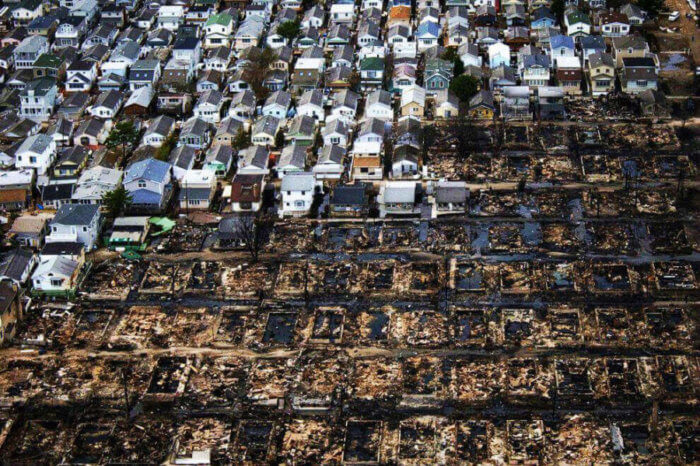
He said recent events like the Russian invasion of Ukraine showed how ordinary people became heroes defending their cities and villages.
“Growing up in Middle Village, I never thought I would write a book, let alone win an award for writing a book,” Pfeifer said. He retired in 2018 after a 37-year career where he was also front and center for the Superstorm Sandy inferno that burned down a hundred homes and businesses in Breezy Point in 2012; the Ebola crisis in 2014; and the rescue efforts during the “Miracle on the Hudson” plane landing in January 2009 that turned a quiet and unassuming pilot Chesley “Sully” Sullenberger into a national hero.
The 73-year-old Christopher Awards are given to authors, producers and filmmakers whose works exemplify and “affirm the highest values of the human spirit,” according to Tony Rossi, the Christopher Awards’ director of communications.
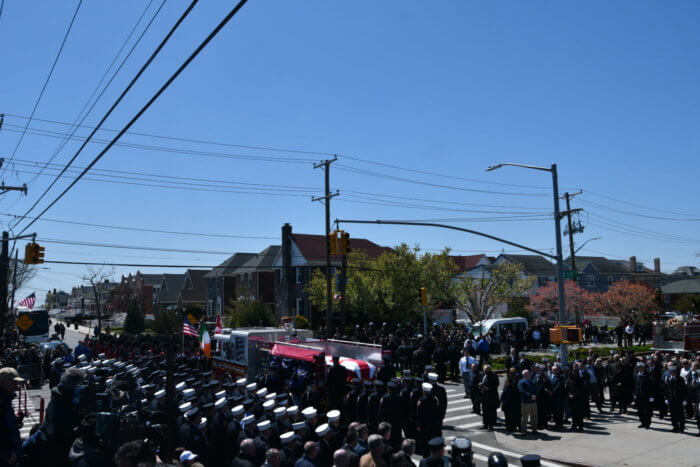
“After the hardships and suffering we’ve witnessed and endured in the last two years, we need stories of hope, light and unity to lift our spirits and guide us to a brighter path,” Rossi said.
Pfeifer was named as one of the Christopher Awards recipients on April 27, three days after FDNY firefighter Timothy Klein was killed battling a three-alarm fire in Canarsie, Brooklyn. Pfeifer was unable to attend his funeral in Belle Harbor on April 29 due to a prior commitment.
“Timmy Klein fits right into that category of ‘Ordinary Heroes’ like the title of the book,” Pfeifer said. “I can tell you every first responder that came to the World Trade Center on 9/11 looked up at the burning towers and knew that they would run into them to save lives. They made that decision just like Timmy did that Sunday afternoon.”

